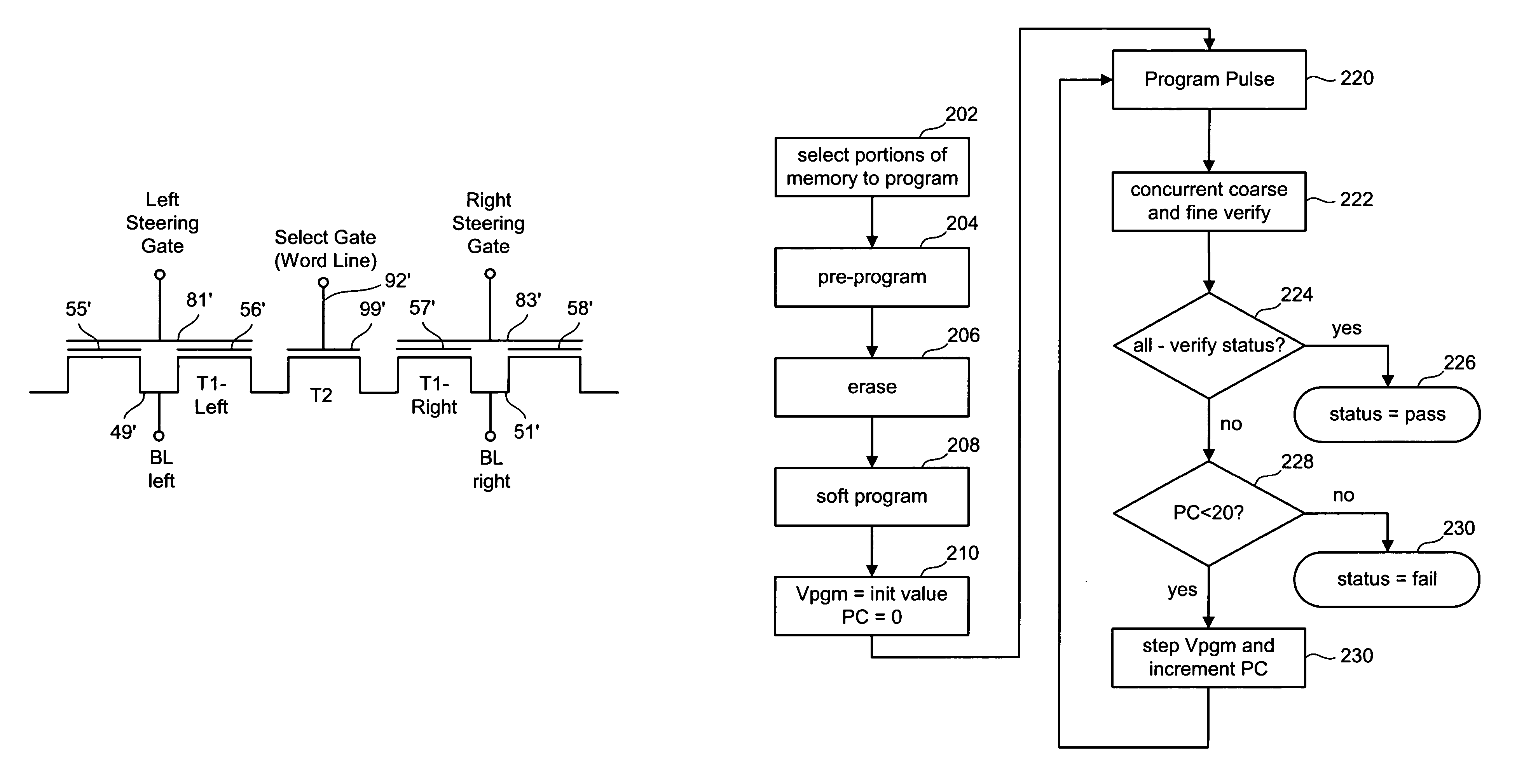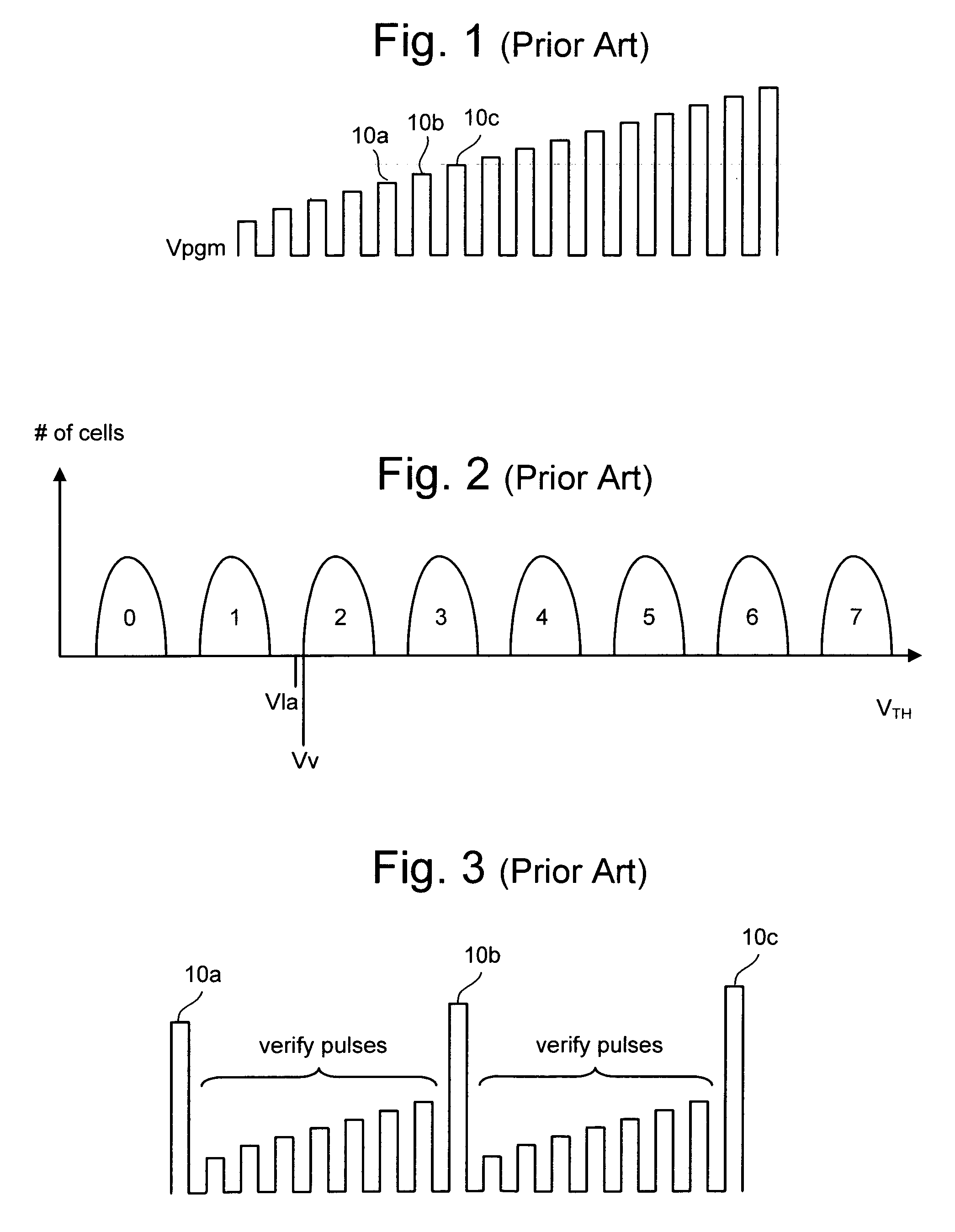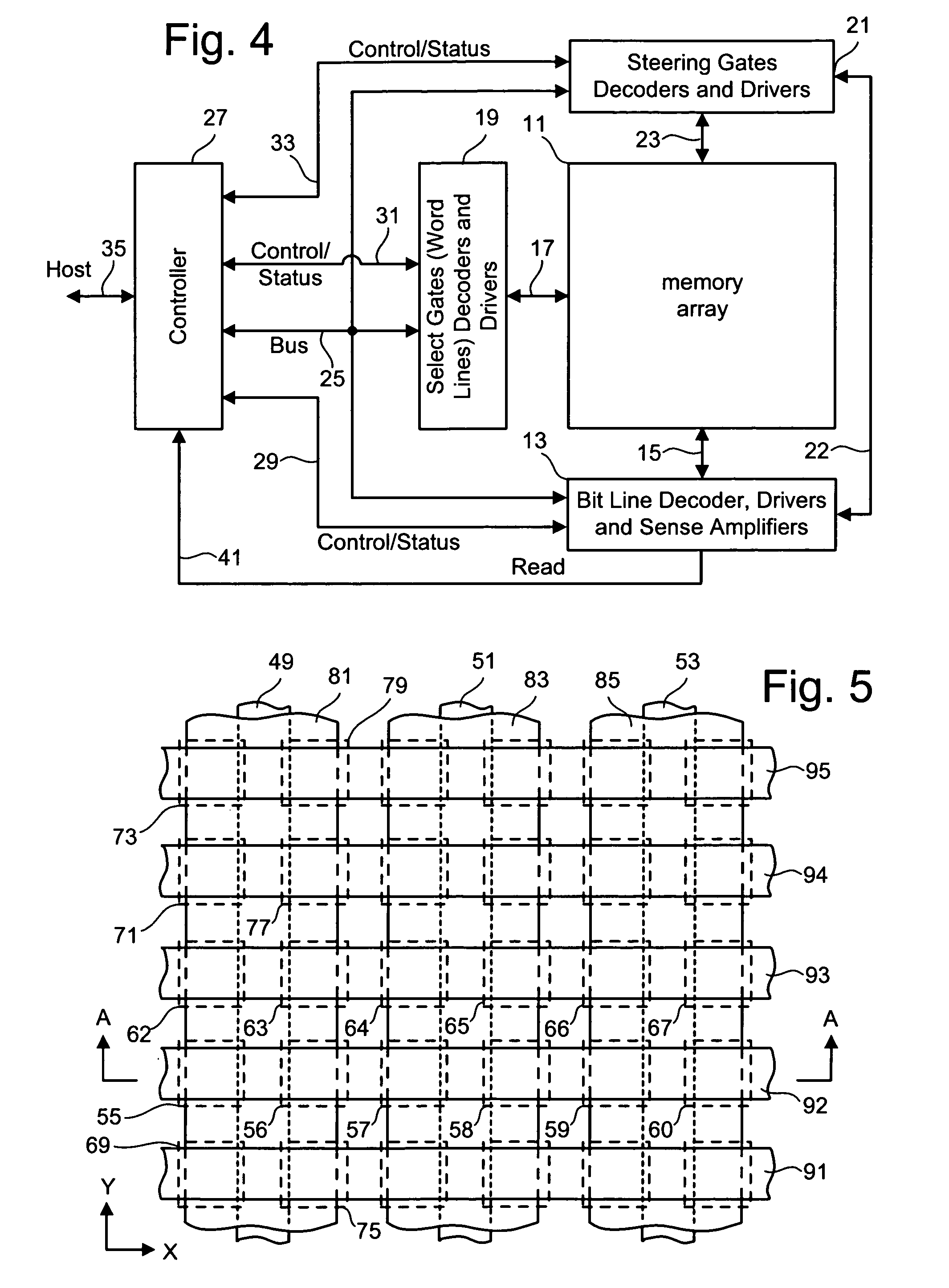Efficient verification for coarse/fine programming of non-volatile memory
a non-volatile memory and programming technology, applied in the field of non-volatile memory technology, can solve the problems of increasing the time needed for verification, assuming errors, limited pulse number, etc., and achieve the effect of improving the coarse/fine programming methodology
- Summary
- Abstract
- Description
- Claims
- Application Information
AI Technical Summary
Benefits of technology
Problems solved by technology
Method used
Image
Examples
first embodiment
[0054]FIG. 5 is a plan view of a portion of memory array 11. FIG. 6 is a partial cross-sectional view of the memory array taken at Section A—A. The substrate and conductive elements are illustrated with little detail of dielectric layers that exist therebetween in order to simplify the figures. However, it will be understood that appropriate oxide layers are to be included between the conductive layers themselves, and the conductive layers and the substrate.
[0055]A silicon substrate 45 includes a planar top surface 47. Elongated diffusions 49, 51 and 53 are formed into the substrate 45 through the surface 47 by an initial ion implantation and subsequent diffusion. Elongated diffusions 49, 51 and 53 serve as sources and drains of the memory cells. In order to provide a convention for this description, the diffusions are shown to be spaced apart in a first “x” direction, with lengths extending in a second “y” direction. These “x” and “y” directions are essentially orthogonal with each...
second embodiment
[0092]FIG. 14 is a second embodiment for performing verification. Rather than using a pair of sensing times with a fixed reference voltage for comparing the bit line voltage, a pair of reference current sources are used. For a given memory cell, when the reference current exceeds its cell current, the associated sense amplifier will indicate such a condition, reflecting that the memory cell is programmed to meet the target threshold condition. Thus, multiplexer 430 will select, based on the output of C / F register 420, whether to provide the current source for the coarse phase (Ic) or the current source of the fine phase (If).
[0093]FIG. 15 depicts another alternative embodiment. In FIG. 15, multiplexer 448 will select either a reference voltage for the coarse programming phase (Vrc) or the reference voltage for the fine programming phase (Vrf) to provide to sense amplifier 410. In this embodiment, sense amplifier 410 will compare the voltage on the discharging bit line after a fixed ...
PUM
 Login to View More
Login to View More Abstract
Description
Claims
Application Information
 Login to View More
Login to View More - R&D
- Intellectual Property
- Life Sciences
- Materials
- Tech Scout
- Unparalleled Data Quality
- Higher Quality Content
- 60% Fewer Hallucinations
Browse by: Latest US Patents, China's latest patents, Technical Efficacy Thesaurus, Application Domain, Technology Topic, Popular Technical Reports.
© 2025 PatSnap. All rights reserved.Legal|Privacy policy|Modern Slavery Act Transparency Statement|Sitemap|About US| Contact US: help@patsnap.com



